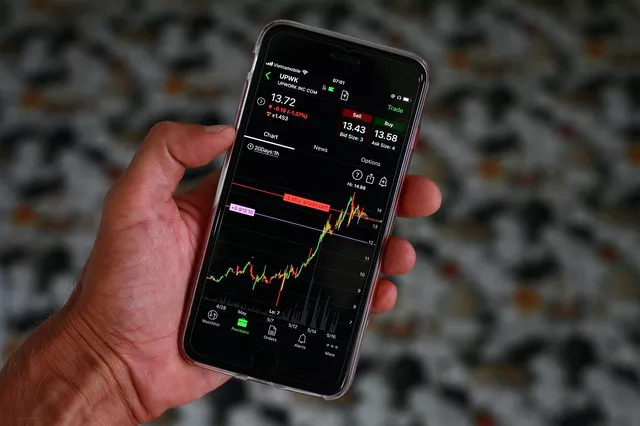The commodities market offers a wide range of investment opportunities for traders looking to diversify their portfolios and hedge against price fluctuations. While traditional commodities such as gold, oil, and agricultural products are commonly traded on futures exchanges, there is growing interest in trading futures contracts for industrial metals like steel. In this article, we will explore the possibility of trading steel futures, examining the market dynamics, potential benefits, and considerations for investors looking to participate in this emerging asset class.
Understanding Futures Contracts
Futures contracts are standardized agreements to buy or sell a specified quantity of a commodity or financial instrument at a predetermined price on a future date. Futures contracts are traded on regulated exchanges, providing liquidity, transparency, and price discovery for market participants. Trading futures allows investors to speculate on price movements, hedge against price risk, and gain exposure to various asset classes without owning the underlying physical assets.
Steel Market Overview
Steel is a crucial industrial metal used in construction, manufacturing, infrastructure development, and transportation industries worldwide. As one of the most widely produced and consumed metals globally, steel plays a vital role in economic growth and development. The steel market is influenced by factors such as supply and demand dynamics, raw material prices, production costs, trade policies, and infrastructure investment. Fluctuations in steel prices can have significant implications for industries that rely on steel as a primary input, making it an attractive asset for futures trading.
Steel Futures Contracts
While steel futures contracts are not as widely traded as futures contracts for other commodities, such as oil or gold, there are exchanges that offer steel futures trading. Futures exchanges provide standardized contracts for various grades and forms of steel, allowing market participants to buy or sell steel futures contracts based on their trading objectives and risk appetite. Steel futures contracts typically specify the quality, quantity, delivery location, and delivery date of the underlying steel product, providing clarity and transparency for traders.
Benefits of Trading Steel Futures
Trading steel futures offers several potential benefits for investors and market participants:
1. Price Discovery: Futures exchanges provide a platform for price discovery, allowing market participants to assess supply and demand dynamics, market sentiment, and fundamental factors influencing steel prices. Trading steel futures can help investors gain insights into market trends and price movements, enabling better decision-making and risk management.
2. Hedging: Steel producers, consumers, and traders can use steel futures contracts to hedge against price risk and protect against adverse price movements. By locking in future prices through futures contracts, market participants can mitigate the impact of price volatility and ensure more predictable revenue or cost streams for their businesses.
3. Speculation: Traders and investors can speculate on steel price movements by buying or selling steel futures contracts based on their market outlook and trading strategies. Futures trading allows participants to profit from both rising and falling steel prices, providing opportunities for capital appreciation and portfolio diversification.
Considerations for Trading Steel Futures
While trading steel futures offers potential benefits, there are also considerations and risks to be aware of:
1. Volatility: The steel market can be volatile, with prices influenced by factors such as global economic conditions, geopolitical events, trade tensions, and supply chain disruptions. Traders should be prepared for price fluctuations and volatility when trading steel futures, as rapid price movements can impact trading positions and profitability.
2. Market Liquidity: Liquidity can vary in the steel futures market, depending on the exchange, contract specifications, and trading volume. Thinly traded markets may have wider bid-ask spreads and lower liquidity, which can affect order execution and slippage. Traders should assess market liquidity and choose exchanges with robust trading activity and depth.
3. Fundamental Analysis: Understanding the fundamentals of the steel market is essential for successful futures trading. Factors such as steel production, consumption trends, inventory levels, raw material prices, and macroeconomic indicators can influence steel prices and market dynamics. Traders should conduct thorough fundamental analysis and stay informed about market developments to make informed trading decisions.
Regulatory Considerations
Futures trading is regulated by government authorities and regulatory agencies to ensure fair and orderly markets, protect investors, and maintain market integrity. Traders should familiarize themselves with the rules, regulations, and oversight mechanisms governing futures trading in their jurisdiction. Compliance with regulatory requirements, including margin requirements, position limits, and reporting obligations, is essential for participating in futures markets responsibly and ethically.
Conclusion
In conclusion, while steel futures may not be as widely traded as futures contracts for other commodities, there is growing interest in trading steel futures as a means of gaining exposure to the steel market, managing price risk, and diversifying investment portfolios. Trading steel futures offers potential benefits for investors, including price discovery, hedging, and speculation opportunities. However, traders should be aware of the risks and considerations associated with trading steel futures, including volatility, liquidity, fundamental analysis, and regulatory compliance. By understanding these factors and conducting thorough research, traders can make informed decisions and navigate the steel futures market effectively.


